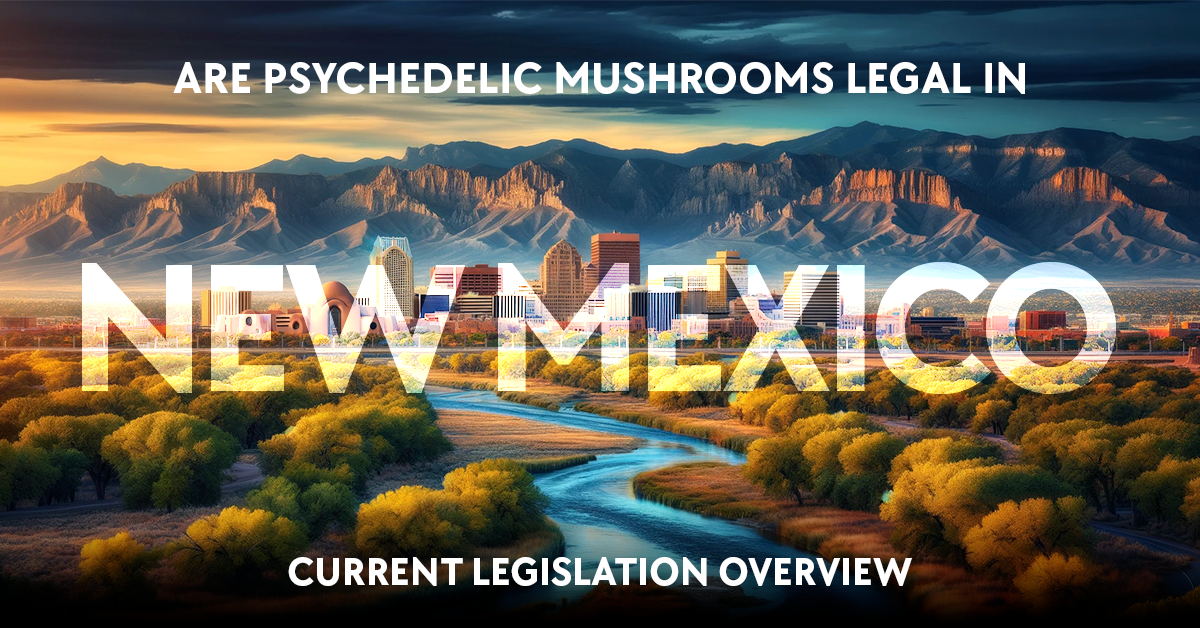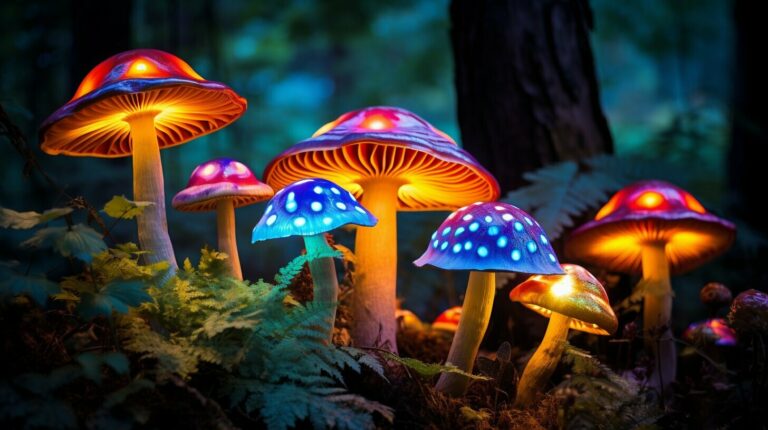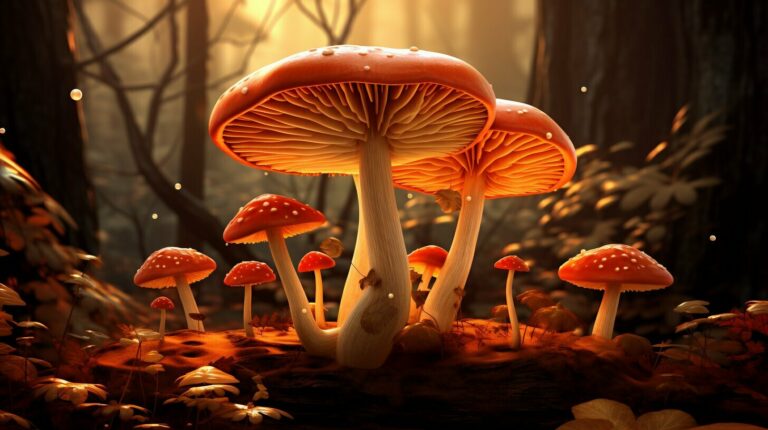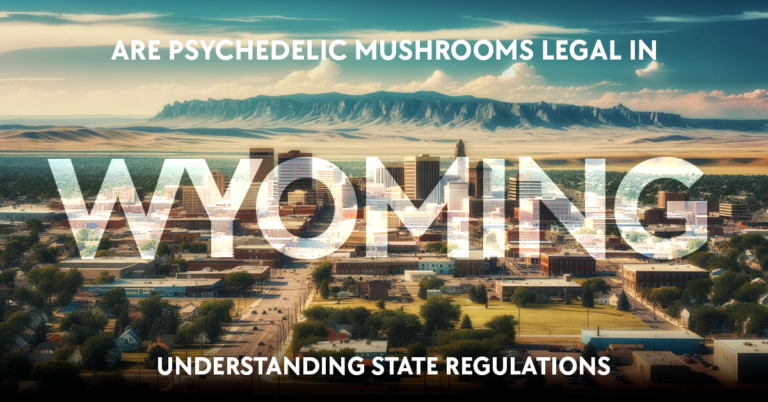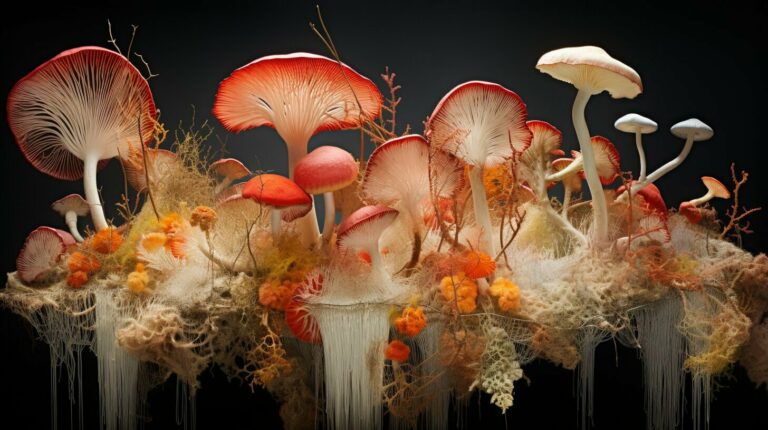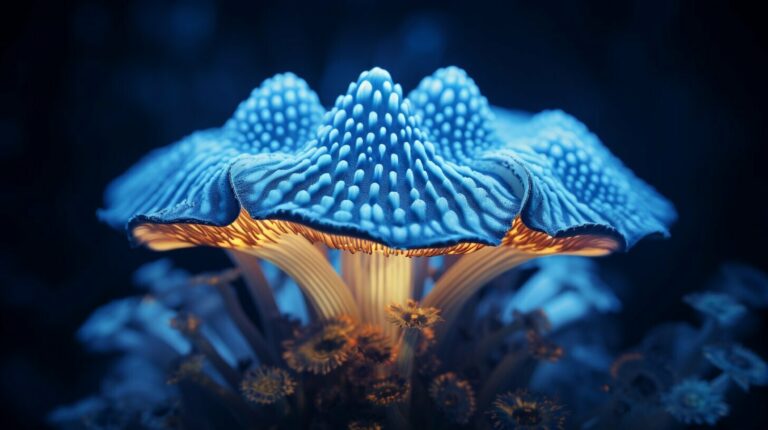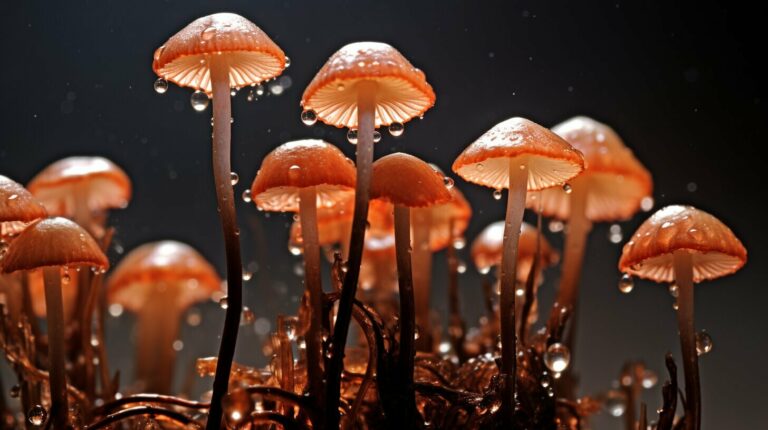When you explore the legal landscape of psychedelic substances, you’ll often encounter a complex patchwork of regulations. In New Mexico, the status of psilocybin-containing mushrooms, commonly referred to as psychedelic mushrooms, has evolved over time. As a natural substance, these mushrooms have a history of use for their psychoactive effects, which are primarily due to the compound psilocybin.

Navigating state law can be challenging, especially when it comes to substances like psychedelic mushrooms that sit in a gray area. In New Mexico, the situation is particularly unique. While psilocybin is classified as a Schedule I controlled substance at the federal level, making its possession, sale, or manufacture illegal, the New Mexico Court of Appeals ruled in 2005 that the state’s Controlled Substances Act does not apply to the cultivation of psilocybin mushrooms as long as there is no intent to manufacture them. This ruling suggests that the growing of these mushrooms for personal use may not be subject to state prosecution under specific circumstances.
However, it’s crucial to understand that this does not equate to legalization. The manufacturing, selling, or distributing psilocybin mushrooms remains illegal, and penalties can be severe. Laws change, and enforcement can vary, so if you’re in New Mexico or any other jurisdiction, staying informed of the latest legal developments is essential to ensure you are not inadvertently breaking the law.
Psychedelic Mushrooms Overview
Table of Contents
https://www.youtube.com/watch?v=qhr3QSEJLMs&embed=true
In the realm of natural psychoactive compounds, psychedelic mushrooms, commonly referred to as “magic mushrooms,” hold a significant position for their mind-altering effects. You’re about to explore what these substances are and the common types you might encounter.
Definition of Psychedelics
Psychedelics are a class of psychoactive substances that can alter your perception, mood, and cognitive processes. One of the key compounds found in psychedelic mushrooms is psilocybin, which your body converts to psilocin. This chemical is responsible for the mushrooms’ hallucinogenic effects. Other well-known psychedelics include LSD (lysergic acid diethylamide), DMT (N,N-Dimethyltryptamine), and mescaline, found in peyote cacti. These substances can induce intense psychedelic experiences, often described as a sense of expanded consciousness.
Common Types and Terms
When discussing psychedelic mushrooms, you will often hear terms like “shrooms” or “magic mushrooms”. These refer to fungi that contain psilocybin, such as the Psilocybe genus. The Psilocybe genus includes several species, with Psilocybe cubensis being one of the most prevalent and widely recognized. Another term that might come across is ayahuasca, a brew that includes DMT, traditionally used in shamanic rituals in the Amazon.
- Psilocybin mushrooms: These are fungi that contain the psychoactive compound psilocybin.
- Shrooms: A common slang term for psilocybin mushrooms.
- Magic mushrooms: Another term for mushrooms that produce psychedelic effects, primarily due to psilocybin.
Current Legal Status

When exploring the legality of psychedelic mushrooms in New Mexico, you must consider both state and federal law. The distinctions at each level influence the overall legal landscape for these substances.
New Mexico State Law
In 2005, the New Mexico Court of Appeals ruled that the cultivation of psilocybin mushrooms for personal use is not prohibited under state law, as long as the mushrooms are not dried or otherwise prepared for distribution. However, this should not be viewed as full legalization. Possession and distribution of psilocybin, the psychoactive compound in psychedelic mushrooms, can still lead to penal consequences as these actions fall under different statutes.
Federal Regulations
At the federal level, psilocybin is classified as a Schedule I controlled substance. This classification means that, according to the federal government, psilocybin has a high potential for abuse, is not currently accepted for medical treatment in the United States, and lacks accepted safety for use under medical supervision. Despite state laws, the federal government can enforce these regulations, which complicates the legal status. Possession, sale, or distribution of psychedelic mushrooms is illegal under federal law and can result in legal repercussions.
Recent Legal Developments

In New Mexico, you will find that recent legal developments have seen changes in the status of psychedelic mushrooms, closely involving decisions by the Court of Appeals and actions by state lawmakers.
Court of Appeals Decisions
The New Mexico Court of Appeals has had a significant impact on the legal status of psychedelic substances. A particular case regarding the decriminalization of psychedelic mushrooms set a precedent. In this instance, the court ruled on the side of personal freedoms, which has since influenced further considerations of substance use and legalization within the state.
Policy Changes and Legislative Actions
Your awareness of policy changes in New Mexico should include the actions of lawmakers in cities like Santa Fe, where initiatives to decriminalize certain natural psychoactive substances have taken place. Such legislative actions demonstrate a shift in how state and local jurisdictions perceive and regulate the use of psychedelic mushrooms. The conversations and decisions by these legislative bodies reflect a broader movement towards decriminalization observed in several regions across the United States.
Psychedelic Research

Psychedelic mushrooms have gained significant attention for their potential therapeutic benefits. Recent studies focus on their use in treating psychological conditions such as depression, PTSD, anxiety, and addiction.
Contemporary Studies
Contemporary research on psychedelic mushrooms is expanding your understanding of their potential therapeutic applications. You will find that much of the research points to substantial improvements in mental health outcomes. In New Mexico specifically, efforts have been made to understand the historical use and current potential of psychedelics in treating various conditions. These studies emphasize the importance of establishing a well-informed framework for future research.
Clinical Trials
Clinical trials are essential for validating the safety and efficacy of psychedelic therapy for conditions like depression and PTSD. These trials often involve structured, supervised sessions with qualified mental health professionals. Evidence from trials underlines the promise of psilocybin, the active compound in psychedelic mushrooms, in reducing symptom severity in individuals with treatment-resistant depression. The structured nature of these trials ensures that the potential benefits of psychedelic therapies can be explored thoroughly and ethically.
Health and Safety Considerations
When considering the legality of psychedelic mushrooms in New Mexico, it’s important for you to understand their health and safety implications. This includes recognizing both potential therapeutic uses and the risks associated with their use.
Potential Benefits
-
Healing and Medicinal Benefits: Studies suggest that psychedelic mushrooms can play a role in psychotherapy and may aid in the treatment of substance abuse disorders. The active compound psilocybin, under controlled settings, has been used to foster emotional healing and psychospiritual growth.
-
Psychotherapy Advancements: Incorporation of psychedelics in therapeutic settings, in some clinical trials, has shown promise in treating a range of mental health issues, amplifying the therapeutic process.
Risks and Adverse Effects
-
Overdose and Adverse Reactions: The risk of overdose, while relatively low compared to other substances, exists if mushrooms are consumed in large quantities or without proper guidance on intent and consumption.
-
Potential for Addiction: While psychedelic mushrooms are not considered highly addictive, they can lead to psychological dependence in some individuals.
-
Legal Consequences: Despite therapeutic potential, possession and use outside approved settings can lead to significant legal consequences.
Remember to approach psychedelic mushrooms with caution, ensuring you are well-informed about both their benefits and risks.
Cultural and Social Context
In considering the legal status of psychedelic mushrooms in New Mexico, understanding the cultural and social context is essential. Key aspects include historical practices and the portrayal of psychedelics within popular culture.
Historical Use and Significance
Historically, the use of psychedelic mushrooms has deep roots in various cultures for religious and spiritual purposes. In New Mexico, which is often referred to as the “Land of Enchantment,” these practices can be traced back to indigenous populations. This region’s rich cultural tapestry includes a history of entheogenic substances used in rituals. Particularly in Santa Fe and Albuquerque, a revival and interest in these traditions have emerged, blending the old with the new.
Psychedelics in Popular Culture
In popular culture, New Mexico has been a backdrop to narratives that intersect with psychedelic themes. The TV series Breaking Bad, set in Albuquerque, includes plotlines that revolve around the drug trade, indirectly casting a light on the state’s drug culture and legal landscape. Meanwhile, Santa Fe’s vibrant arts scene has seen figures like Bett Williams, with her memoir The Wild Kindness; A Psilocybin Odyssey exploring personal experiences with psychedelics. The arts here often reflect and influence public perceptions of psychedelics, contributing to a nuanced dialogue about their legality.
Legal Precedents in Other Jurisdictions
As you consider the legal status of psychedelic mushrooms in New Mexico, it’s informative to examine the legal precedents set by various states within the U.S. as well as international jurisdictions. These precedents reflect a diverse range of legal attitudes and regulations, from decriminalization to therapeutic research usage.
Case Studies from Other States
Oregon: Oregon became a trailblazer by passing Measure 109 in 2020, which allows licensed service providers to administer psilocybin-producing mushroom and fungi services to individuals aged 21 and older.
California: Cities such as Oakland and Santa Cruz have decriminalized the use of entheogenic plants, including psilocybin mushrooms, signaling a shift in local law enforcement priorities.
Colorado and Washington: Both states have seen initiatives to decriminalize or promote research into psilocybin, but statewide legal reforms have yet to be enacted.
-
Ann Arbor, Michigan: Ann Arbor City Council voted to decriminalize the use of psychedelic plants and fungi in September 2020.
-
Denver, Colorado: The city decriminalized the possession and personal use of psilocybin mushrooms in May 2019.
Connecticut and Hawaii: Legislatures in these states have introduced bills to authorize medical research into psilocybin but have not yet changed their legal status.
International Perspectives
Canada: Canada has recently allowed for the therapeutic use of psilocybin for patients in palliative care through exemptions to the Controlled Drugs and Substances Act, showcasing a shift towards acceptance of psychedelics under medical supervision.
Countries such as the Netherlands: The sale of “magic truffles,” which contain psilocybin, is permitted within certain legal constraints, indicating more liberal policies towards psychoactive substances.
Portugal: While not explicitly legalizing substances like psilocybin mushrooms, Portugal decriminalized the personal possession of all drugs, reflecting a harm reduction approach.
As laws are rapidly evolving, keep abreast of the latest legislative changes that may influence policy in New Mexico.
Guidance for Personal Conduct
When navigating the complex legal landscape concerning psychedelic mushrooms in New Mexico, you must understand the specifics around ownership, use, cultivation, and distribution. Your actions must align with the current state and federal regulations to avoid legal repercussions.
Ownership and Use
In New Mexico, the courts have determined that growing psilocybin mushrooms for personal use is not illegal. However, possessing psilocybin — the active compound in psychedelic mushrooms — may be considered a controlled substance possession under federal law, despite state ruling on the cultivation for personal use.
- Possession: Be aware that federal law still treats psilocybin as an illegal substance.
- Personal Use: Review state laws diligently, as they can differ from federal regulations.
Cultivation and Distribution
While personal cultivation has been found to fall within the legal scope in some specific precedents, cultivation for distribution purposes remains a legal risk, particularly under federal law.
- Manufacturing/Cultivation: Legal under specific state court rulings for personal use.
- Distribution/Drug Trafficking: Illegal under both state and federal laws and carries significant penalties.
Remember: This guidance doesn’t replace professional legal advice. Always consult with a qualified attorney to understand the full extent of the law as it applies to your circumstances.
Frequently Asked Questions
Understanding the legal landscape surrounding psychedelic mushrooms in New Mexico is crucial if you’re considering their use or research. Below you’ll find concise answers to common legal questions about psilocybin mushrooms in the state.
What are the legal implications of possessing psychedelic mushrooms in New Mexico?
Possessing psychedelic mushrooms in New Mexico can lead to criminal charges since they are classified as Schedule I controlled substances under both federal and state law. Engaging in activities related to these substances without proper authorization carries potential legal consequences.
Has there been recent legislation in New Mexico regarding the decriminalization of psilocybin mushrooms?
As of the current knowledge cut-off, there have not been any successful legislative efforts specifically aimed at the decriminalization of psilocybin mushrooms in New Mexico. Laws surrounding controlled substances are subject to change, so it’s important to stay informed about the latest legal developments.
Are there any exceptions for the use of psilocybin mushrooms in New Mexico for research or medicinal purposes?
New Mexico does not have provisions in place that allow the use of psilocybin mushrooms for medicinal or research purposes; federal law restricts such uses. Authorization at the federal level is required for research involving Schedule I substances.
How do New Mexico’s laws on psychedelic mushrooms compare to those of other states?
New Mexico’s laws relating to psychedelic mushrooms are quite strict, similar to federal regulations and many other states. There are a few states and cities that have moved towards decriminalization, but this is not the case in New Mexico.
What penalties could one face for the sale or distribution of psychedelic mushrooms in New Mexico?
The sale or distribution of psychedelic mushrooms is illegal and can result in significant penalties including imprisonment, fines, and a permanent criminal record. The severity of the penalties often depends on the quantity of mushrooms and prior offenses.
Can individuals cultivate psilocybin mushrooms in New Mexico without facing legal consequences?
Cultivation of psilocybin mushrooms in New Mexico is illegal and can lead to criminal charges similar to those for possession or distribution. While spore prints may be legal for educational or scientific use, cultivation of the mushrooms they produce is not permitted.

